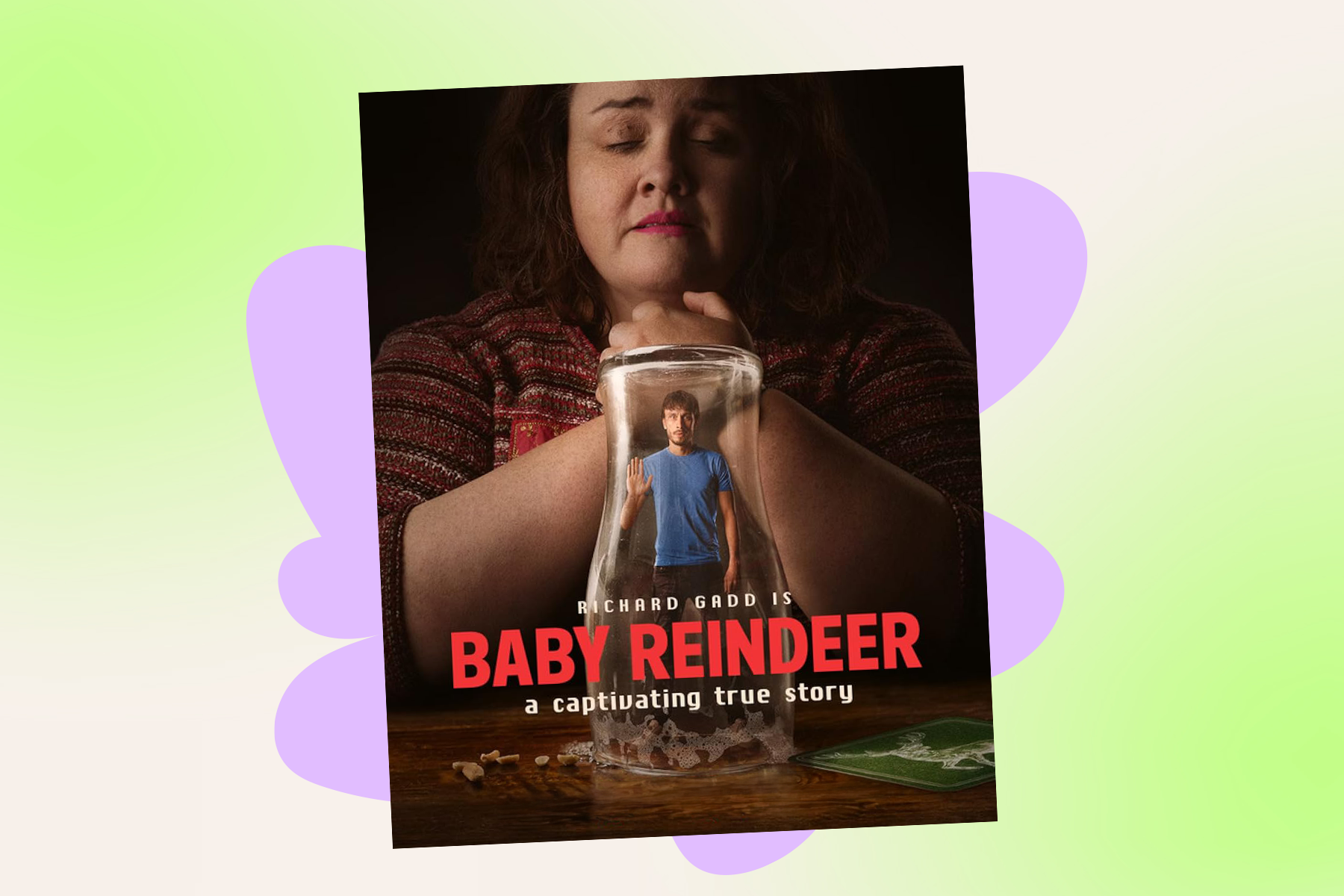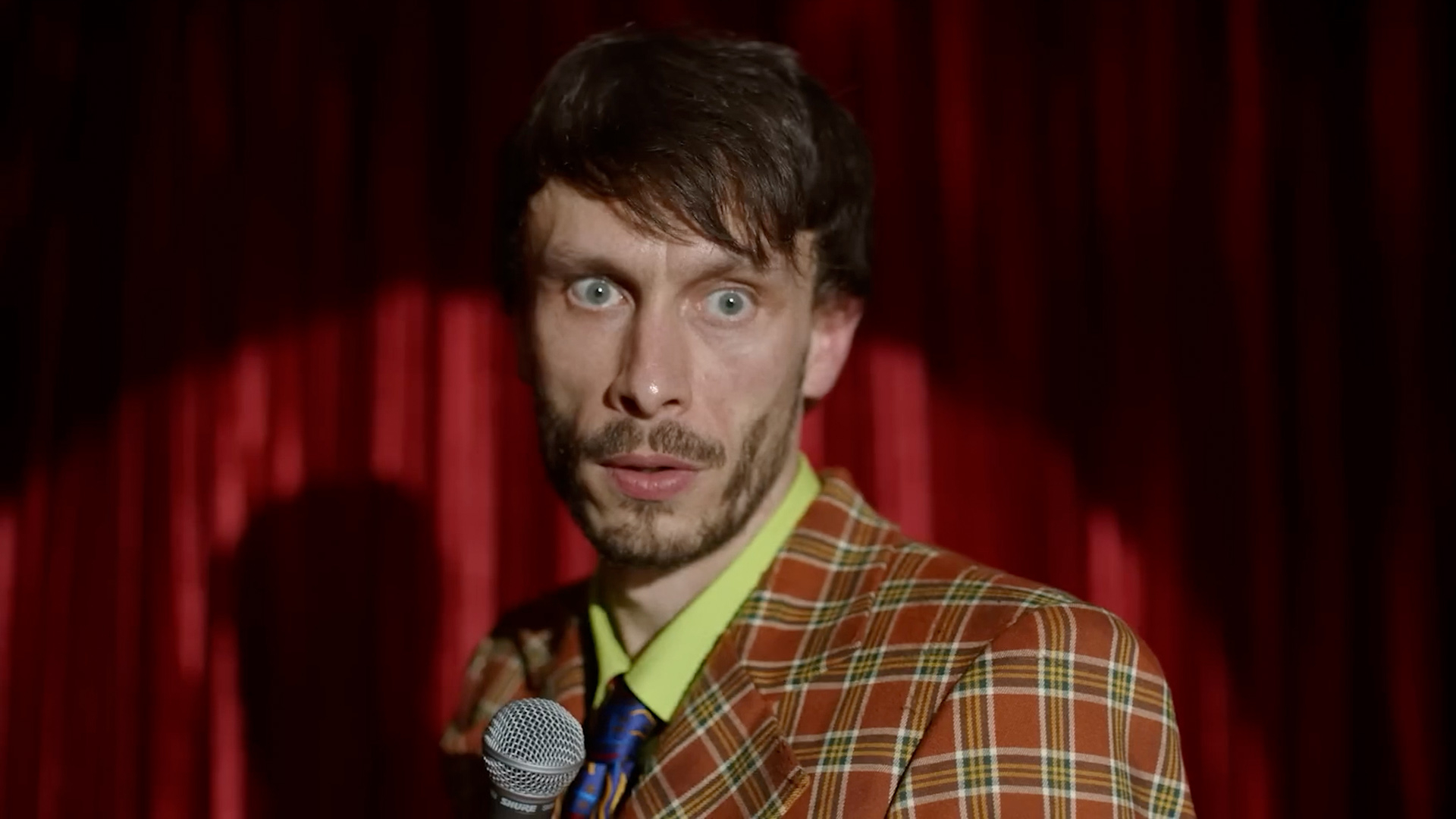Your cart is currently empty

Trigger Warning: Mentions of stalking, harassment, sexual assault, rape & abuse.
In almost three decades of my living with countless shows binged, this is the first time a supposed means of entertainment has left me in fog for several days. If I recall correctly, the last time I felt this strange despair was after reading Sylvia Plath’s The Bell Jar. It wasn’t that the show brought back painful memories of my own sexual assault—as it would have been for countless other survivors of sexual abuse, but it’s the aftermath of abuse, that can take years, almost a lifetime to heal. This part, the aftermath, I feel is quite phenomenally illustrated in Baby Reindeer, a TV show that aired on Netflix this year in April.

The seven-episode drama series follows the life of Donny (played by Richard Gadd), who in his earlier years was a comedian, and now tends bar at a London pub. The show starts with Donny trying to report a stalking complaint against a woman who he claims has been harassing him for nearly six months. The cop seems unconvinced of Donny’s claims and instead asks him a question, heard by many sexual assault victims: why did he take so long to report it?
Cut to six months earlier, a seemingly pitiable looking middle-aged woman, Martha (played by Jessica Gunning), walks into the same pub where Donny works. Unaware of the events that will fold with his one kind gesture, Donny offers her a free cup of tea to cheer her up and there begins the story with Martha beginning to stalk and harass Donny, his girlfriend and family, online and offline for many months to come.
The plot:
The show’s screenplay is written by Richard Gadd himself and is based on true events from his life as a survivor of both stalking and rape; and in parts depicts how the trauma dictated the rest of his life choices, often putting himself in vulnerable situations due to shame, guilt and self-hatred that comes from experiencing sexual abuse. Gadd does a brilliant job at dissecting and examining his trauma from the lens of a survivor; attempting to make sense and even find clarity in his life, post the rape.
In the later episodes of the series we learn why he let Martha, a dangerous woman and convicted serial-stalker, become such an intrinsic part of his life. In years preceding his encounter with Martha, Donny meets Darrien, an influential writer and comedian who helps Donny with his dreams of becoming a successful comic. He starts grooming Donny with his acts, gradually growing Donny’s audience.

While Donny seems to be intimidated by Darrien, he also looks up to him for his work and believes Darrien will be his ticket to success. But much to his misfortune, Darrien under the guise of mentorship offers Donny drugs and starts to sexually assault him repeatedly and eventually rapes him while he is under the influence of strong drugs.
In a horrifying scene, even after the rape, Donny stays back at Darrien’s place and seeks comfort from him, like many real-life survivors of abuse who try to make sense of their assault and rape. After this episode, it eventually starts to unravel why Donny let Martha harass him for as long as he did; partly using her obsession with him to distract him from his own trauma of assault and rape.
Baby Reindeer touches upon these many complexities of a person who a) is trying to accept their sexual trauma and b) is taking measures, often misguided, twisted and harmful ones, to heal from it.
The healing:
How does one cope with the life-long mental and emotional trauma of being raped? Who do you go to for comfort and support? Clearly, not the abuser? Except that’s exactly what Donny does in the show. In an extremely graphic and disturbing scene, Donny leans on his rapist after the night of his rape, to seek some level of comfort. For a myriad of reasons that perhaps, survivors of sexual abuse will understand – Donny does not report his rapist. Instead he begins on a journey of reliving his trauma through other ways in a distorted hope to make sense of it and why did it happen to him in the first place.
In the show, Donny attempts to find some semblance to normalcy in all the dark places and by experimenting with his sexuality until he meets and falls in love with Teri, a transgender woman he is ashamed of being publicly seen with. Their love evolves over time when Donny shares the truth of Martha and she finally convinces Donny to report Martha to the authorities. Unfortunately, coming to terms with abuse and the process of healing is never linear, it takes courage and resolve to do the right thing, and make right choices over and over.
The end:
This is perhaps what I like best about the show – the tragic path that one navigates to find their ground after experiencing trauma. Donny makes many (failed?) attempts to do the right thing but is swayed by the distraction that Martha and Teri bring into his life. Finally, at one of his stand up shows, he drops his regular comic act and gets real with the audience, sharing his journey of abuse and rape instead. Someone within the audience records this moment of honesty and vulnerability on-stage and eventually Donny’s video goes viral.
Instead of pursuing the opportunities that came with the success of his show and conviction of his stalker – Martha, he starts to obsess over Martha’s voice notes and messages/emails sent to him over years. He takes on a path to try and dissect Martha’s infatuation with him.
There is a strange kind of loneliness that settles in your body after having experienced abuse. I am not sure if this feeling of isolation ever really goes away but as reliant humans we attempt to make decisions that help us feel less alone. As per my interpretation, for Donny, this loneliness comes to an end when he finally understands Martha as a very flawed human who herself has been a victim of trauma. He finally realises his and her behaviour mirrors one another and sitting alone at a bar, being offered a free drink when he is at his lowest by a kind bartender, makes him understand the paradigm of same empathy that Martha felt for him.
Note: According to a National Commission for Women research from 2022, 1.4% of males in India had experienced sexual harassment, and only 3,000 incidences of sexual assault on men were documented in India in 2022. Given the Indian society where it is deemed un-masuline and humiliating to have undergone sexual abuse, it is safe to assume the violence against men goes severely unreported. Barring section 377 of The Indian Penal Code, there is no other legislation that protects Indian men from sexual assault or rape.
For survivors of sexual abuse, That Sassy Thing provides free access to masterclasses in Healing from Sexual Trauma by Neha Bhatt.
Questions and concerns about sex have been brewing in Moh Maya’s (she/her) head since she was 10. So she finds it fitting to document the intricacies of sexuality here and in her half-written chapters of a book on love lives of young women from India’s urban and rural spaces. She can be found observing and photographing everyday lives in the neighbourhoods of Mumbai.












